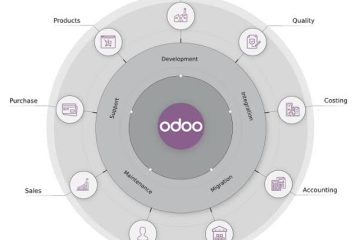What was once an obscure fad has evolved into a mainstream phenomenon: the ketogenic diet, marked by its unusually high fat and paltry carb quotient, is the toast of the town. Imagine switching from a carb-reliant metabolism to one that effortlessly taps into fat reserves for energy – that’s the winning formula behind this diet.
Ketosis kicks in when you severely restrict carbs, bringing your daily intake down to around 50 grams or less. This forces your liver to flip a switch, converting fatty acids into ketones instead. These ketones then serve as an alternative fuel for the brain and body.
Fat may be the fattening-up star of the ketogenic diet show, but protein is the trusty sidekick that keeps your muscles buff and your health on track. Two things protein does exceptionally well are building and repairing tissues and producing the hormones that regulate our bodily functions – and it’s also the superstar of our immune system, keeping germs and other invaders at bay.
On a ketogenic diet, the amount of protein consumed must be carefully balanced. Going overboard on protein can subtly sabotage your keto efforts by triggering a metabolic shift that turns excess amino acids into glucose, throwing your body’s chemistry off balance.
Knowing exactly how much protein to fuel your ketogenic journey is the linchpin to embracing the benefits of this lifestyle – it’s what propels you into a state of optimal metabolic health. Typically, a ketogenic diet comprises about 70-75% fat, 20-25% protein, and 5-10% carbohydrates, but individual needs may vary based on factors such as activity level, age, and health goals.
The Role of Quality Protein in Ketosis
Essential Amino Acids for Muscle Repair and Growth
Quality protein is paramount in a ketogenic diet because it provides the necessary amino acids that the body cannot synthesize on its own. This is especially important for those engaging in physical activity. Muscle health is integral to overall metabolic function, a key tenet of Healthy keto living.
Additional Health Benefits of High-Quality Protein Sources
High-quality protein sources, such as grass-fed beef, wild-caught fish, and free-range poultry, not only supply these essential amino acids but also come with additional health benefits. Omega-3 fatty acid levels get a boost, while harmful additives are pared back – a winning combination for your health.
Something remarkable happens when you choose high-quality protein sources: you’ll find yourself feeling fuller for longer. And that’s no small thing, especially for those working to stick to their diets, where controlling hunger and cravings can be a major hurdle.
Balance of Nutrients for Overall Health
When protein is derived from high-quality sources, it often contains a better balance of nutrients that support overall health. For instance, proteins from animal sources are typically rich in vitamins B12 and D, iron, and zinc—nutrients that are vital for energy production and immune function. Unlike top-tier protein sources, their lower-quality counterparts might fall short of vital nutrients or even pack unwanted extras that can harm your health.
Benefits of Choosing High-Quality Protein on Keto
Opting for high-quality protein sources while following a ketogenic diet offers numerous benefits that extend beyond mere macronutrient composition. Simply put, better proteins mean better nutrition – it’s a textbook case of quality over quantity.
Foods such as grass-fed beef or organic chicken not only provide protein but also deliver a wealth of vitamins and minerals that support various bodily functions. By opting for grass-fed beef, you’ll get more conjugated linoleic acid in your diet, and that can lead to a two-pronged benefit: a leaner body and accelerated fat loss.
Think of high-quality proteins as a protective shield for your metabolic health – they help safeguard against debilitating issues and empower your body to thrive. Two big contributors to weight gain and chronic disease are high inflammation and low insulin sensitivity. Luckily, diet can come to the rescue: loading up on high-quality protein helps tackle both issues head-on.
Amino acids in high-quality proteins are like conductors, expertly guiding hormones that regulate appetite and metabolism, helping you stay full and energized throughout the day. When carbohydrates are scarce, hunger pangs can be intense – but finding a hormonal sweet spot can provide much-needed relief for keto enthusiasts.
Think Again: Decoding the Best Protein Sources
Mastering the art of protein selection means getting to grips with what makes one source shine and another stagnate. High-quality proteins are typically minimally processed and sourced from animals raised in healthy environments.
For instance, grass-fed beef is often considered superior to grain-fed beef due to its higher omega-3 fatty acid content and lower levels of unhealthy fats. Similarly, wild-caught fish is generally preferred over farmed fish because it tends to have a better nutrient profile and fewer contaminants.
Before you toss that protein supplement into your shopping cart, hit pause. It’s what’s on the label that truly matters, not the fancy marketing spiel. Look for terms such as “grass-fed,” “pasture-raised,” “wild-caught,” or “organic,” which often indicate higher quality.
Additionally, consider the source of the protein; local farms or reputable suppliers may offer fresher and more ethically raised options compared to mass-produced products found in supermarkets. For plant-based eaters on a ketogenic diet, high-quality protein sources include nuts, seeds, and legumes that are low in carbohydrates but rich in essential amino acids.
Potential Risks of Low-Quality Protein on a Ketogenic Diet
Incorporating low-quality protein sources into a ketogenic diet can pose several risks that may undermine health goals. One significant concern is the potential for increased inflammation due to the consumption of processed meats or proteins laden with additives and preservatives.
Bad protein sources can be wolves in sheep’s clothing – loaded with unhealthy fats and pumped full of chemicals that wreak havoc on your gut, leading to chronic inflammation and increasing the risk of obesity and diabetes. BOTTOM LINE: Low-quality proteins often come up short on the essential nutrients that keep you running like a well-oiled machine.
For instance, processed meats may be high in sodium and nitrates but low in beneficial vitamins and minerals. Think of this nutrient as the linchpin that holds your body’s many systems together – without it, your energy levels sag, your immune function falters, and your overall health begins to fray at the edges.
Additionally, relying on low-quality protein sources may hinder muscle maintenance during the weight loss phases of a ketogenic diet, as these proteins may not provide adequate amounts of essential amino acids necessary for muscle repair and growth.
Incorporating Quality Protein into Your Keto Meal Plan
Animal Protein Options
Start by including a variety of high-quality animal proteins such as grass-fed beef, free-range chicken, wild-caught fish, and pasture-raised eggs in your meals. These options can be grilled, baked, or sautéed with healthy fats like olive oil or coconut oil to enhance flavor while maintaining ketosis.
Plant-Based Protein Options
For those who prefer plant-based options or are looking to diversify their protein intake, consider incorporating nuts like almonds or walnuts, seeds such as chia or hemp seeds, and low-carb legumes like lentils or chickpeas in moderation. These can be added to salads or smoothies for an extra protein boost without significantly increasing carbohydrate intake.
Supplementing with Protein Powders
Additionally, using high-quality protein powders made from whey or pea protein can be an effective way to supplement your diet when whole food sources are not available or convenient. Ensure they are free from added sugars and fillers by consulting reputable sources such as NIH Office of Dietary Supplements.
Fine-tune your diet to get the most bang for your buck – and feel the difference.
Here’s the deal: ketosis is amazing, but it’s only as good as the protein you’re putting in your body. To really maximize your nutritional intake, be choosy about your protein sources. By making informed food choices, you can knock out two birds with one stone: slim down and experience better overall health and vitality.



